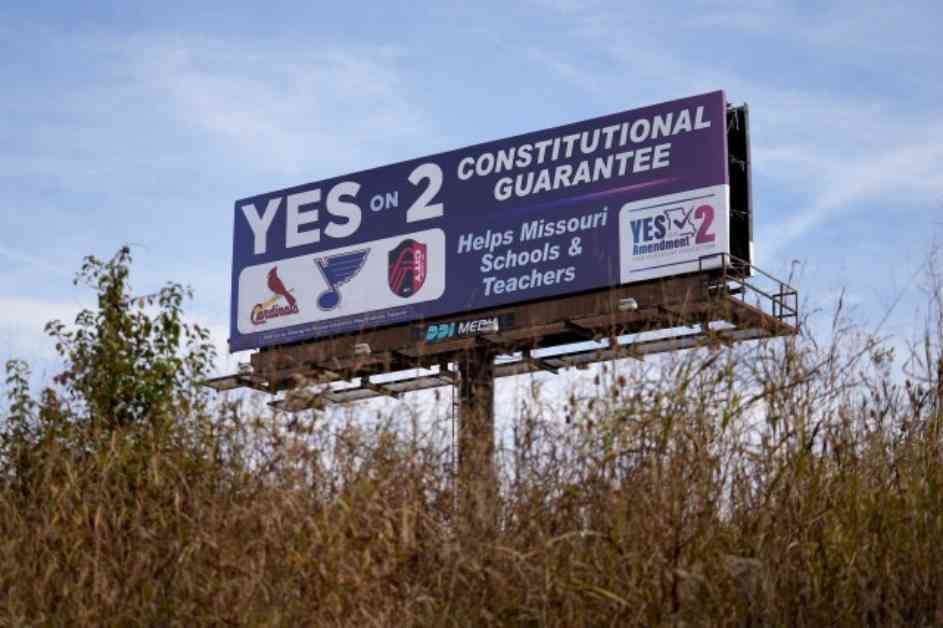The discussion around Missouri’s proposed ballot measure to legalize sports betting has brought to light the debate over tax rates in the rapidly growing industry. If approved by voters, the measure could potentially generate millions in new tax revenue for schools. However, there are concerns that many promotional costs, such as cash-like credits offered by sportsbooks, will be exempt from state taxes, limiting the overall revenue available for education.
This tax debate is not unique to Missouri, as several states have already adjusted their tax rates since legalizing sports betting. States like Illinois, Ohio, Tennessee, and Washington, D.C., have increased or restructured their tax rates, while others like Colorado and Virginia have reduced the tax deductions they initially allowed. The range of tax rates varies widely, from as low as 6.75% in Iowa to as high as 51% in New York, with different rules on promotional deductions further complicating the landscape.
Missouri’s proposed 10% tax rate on sports betting revenue falls below the national average of 19% paid by sportsbooks to states last year. The state’s constitutional amendment includes provisions for carrying over negative balances for months when sportsbooks owe nothing due to deductions for “free play.” Additionally, Missouri’s amendment places a cap on the amount of promotional credits that can be deducted from taxable revenue, although projections indicate this cap may not be reached in practice.
The approach taken by Missouri aligns with strategies that have proven effective in other states like Colorado, which saw success with a 10% tax rate on sports betting revenue and full deductions for promotional bets. Over time, Colorado adjusted its law to gradually reduce the promotional tax deductions, leading to a significant increase in sports betting tax revenue. This growth prompted lawmakers to seek approval from voters to retain more tax revenue from sports betting.
While capping tax deductions for promotional bets is a positive step, some experts question the practice of exempting these costs from taxes altogether. The issue of whether states should be subsidizing gambling through tax policies remains a point of contention. The Missouri ballot measure, funded by DraftKings and FanDuel, faces opposition from Caesars Entertainment, which operates several casinos in the state.
The impact of different tax rates on sports betting can be observed in states like New Jersey and Illinois, where varying tax structures have influenced revenue generation. Despite concerns over higher tax rates, there is little evidence to suggest that sportsbooks compromise the odds for bettors in states with increased taxes. Ultimately, competition among sports betting operators drives them to offer attractive odds and promotions to attract customers.
As the Missouri ballot measure heads to a vote, the outcome will not only shape the future of sports betting in the state but also contribute to the ongoing conversation around tax policies in the industry. With the potential for significant revenue generation, finding the right balance between taxation and incentives for bettors will be crucial for policymakers moving forward.
